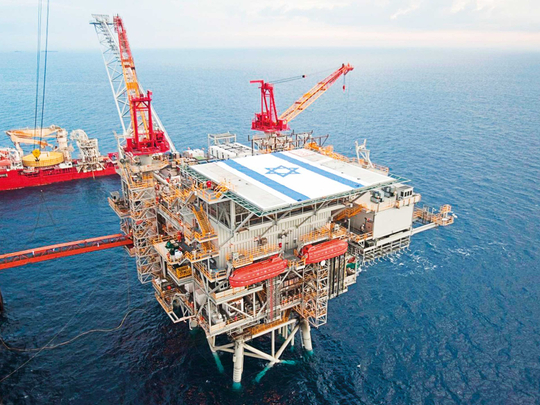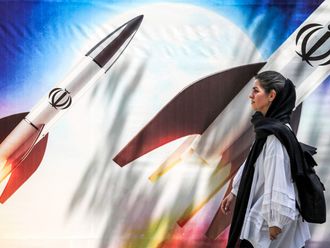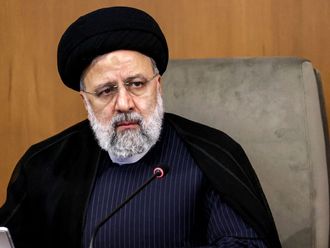
Washington: With a spate of new deals and discoveries in recent days, optimism is raging about the potential energy bounty lying underneath the eastern Mediterranean Sea. But energy development could as easily become a casualty as the cure for the region’s tortured geopolitics.
On Monday, Israel and Egypt finally inked a $15 billion agreement to export natural gas from a pair of Israeli offshore fields to energy-starved Egypt, a deal that had been in the works for years.
That announcement came hard on the heels of a potentially huge discovery of natural gas in waters off Cyprus, which has been trying and failing to strike it big like its neighbors for almost a decade. And all the new developments come just weeks after Greece, Cyprus, Israel, and Italy signed a preliminary accord to build a pipeline to carry gas to Europe, which has spent years looking for fresh sources of energy.
But for all the region’s promise, energy hasn’t been able to break the shackles of long-standing geopolitical rivalries.
Lebanon and Israel are at daggers drawn over new plans for exploration in offshore gas fields in disputed waters.
Israel, Lebanon clash over offshore energy
■ Lebanon is vowing to go ahead with oil and gas exploration near its maritime border with Israel, despite Israeli claims to the offshore area.
And this month, a Turkish naval ship intercepted an exploration vessel working in waters off Cyrus, threatening to escalate tensions between the Greek and Turkish halves of the divided island.
agreement by Israel to export gas from two offshore fields to Egypt
“These resources are not an instrument for peace,” says Mona Sukkarieh of the Beirut-based Middle East Strategic Perspectives (MESP), a risk consultancy. But given the need for traditionally wary neighbors to work together to develop the new finds and build the infrastructure to bring them to market, the energy resources could still pay geopolitical dividends of a sort.
“By their very nature, so far at least, they impose cooperation,” she says.
Israel’s first two gas fields are running at full speed, and two more could see investment decisions this year, notes Nikos Tsafos, an energy expert at the Center for Strategic and International Studies. Meanwhile, Egypt brought the Zohr field, its own mammoth gas discovery, online in record time, which promises to ease a cash crunch in Cairo aggravated by importing pricey gas.
“If you step back, it is remarkable how much gas has been developed,” Tsafos says.
Lebanon’s decision this month to award an exploration concession to three international firms - France’s Total, Italy’s Eni, and Russia’s Novatek - to drill in a promising block off the Lebanese coast has ignited fresh tensions between the two countries. Lebanon, which sees all the offshore blocks as belonging to it, has vowed to pursue development despite false Israeli claims to it.
The southerly block in question is seemingly one of the most promising for natural gas, says Sukkarieh of MESP.
But Israel hasn’t backed down, with Defense Minister Avigdor Lieberman calling the development plans “provocative conduct.”
All the while, the Lebanese militant group Hezbollah has waded into the energy dispute, reiterating late last week that it could attack offshore Israeli energy installations if Israel interferes with Lebanon’s development plans.
“The present clash is still at a rhetorical level, but things in this region can quickly escalate, which highlights the need to pursue mediation,” Sukkarieh says.
In mid-February, US Secretary of State Rex Tillerson traveled to Lebanon, hoping to defuse tension by peddling a 2012 demarcation line originally put forth by senior US diplomat Fred C. Hoff.
It gave Israel one third of the disputed 860 square kilometres of water in the triangular zone, leaving Lebanon with 550 square kilometrs only.
Parliament Speaker Nabih Berri snapped that the “Hoff Line” was “unacceptable” while Hezbollah chief Hasan Nasrallah called on all Lebanese to reject the US proposal, saying: “This is a battle for all of Lebanon.”
A senior State Department official told reporters last week that the United States hopes that “choices are made which contribute not just to stability, which we always want, but also to the greater prosperity of Lebanon, full stop.”
The Lebanese-Israeli maritime border isn’t the only festering dispute that is being aggravated by a fight over potential energy riches.
Cyprus, which has been feverishly drilling off its own coast in the hope of finding big gas fields as Israel and Egypt have done, finally struck gold this month with what could be a massive discovery south of the island, in a field known as Calypso. Cyprus’s only other decent-sized discovery, Aphrodite, came years ago, and the country had little success since then in replicating its neighbors’ good fortune.
The new discovery could give Cyprus the critical mass needed to develop its gas fields and fulfill its dreams of supplying Europe with energy; Aphrodite alone was too small to make large-scale infrastructure investments viable.
But just as the new discovery transforms Cyprus’s energy prospects from iffy to hopeful, it is also raising Turkey’s dander. This month - as it did in 2014 - a Turkish ship intercepted a drilling vessel in Cypriot waters; Ankara, which recognizes the Turkish north of the divided island, refuses to cede those waters to Greek Cyprus and angrily warned it could take further action if development continues.
The Turkish Foreign Ministry said it is “determined to take the necessary steps” to support the northern half of the island in its dispute with Greek Cypriots, who Ankara said are “irresponsibly jeopardising the security and stability of the Eastern Mediterranean region.”
Turkey even blamed energy exploration for helping scupper last year’s talks at reunifying Cyprus.
“[A]s long as the Greek Cypriot administration continues its unilateral hydrocarbon-related activities, it will remain evident just how far removed the Greek Cypriot side is from perceiving the Turkish Cypriots as their equal partners,” the ministry said.
Turkey’s heated reaction underscores that even a shower of energy riches, and the need to cooperate to fully develop them, can’t necessarily bury old animosities that crisscross the region.
“Shared interest in [energy resources] might provide an incentive for cooperation among countries of the region that already enjoy more or less good relations,” Sukkarieh says. “But it is equally conceivable that they could fuel rivalries as well, like we are seeing lately with Turkey.”










